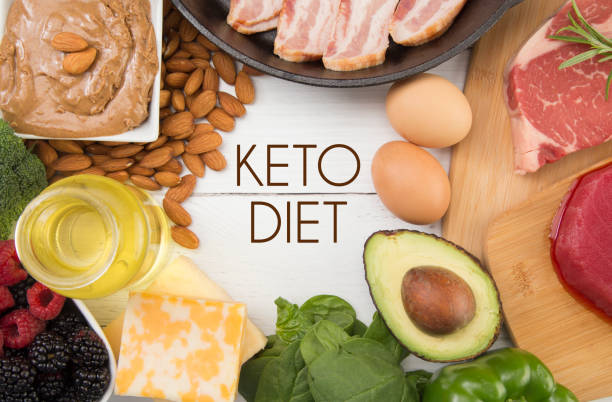The keto diet is a low carb, high-fat way of eating. This diet aims to help your body reach a metabolic state known as “ketosis.” Simply put, when you reach ketosis, your body will burn fat instead of carbohydrates.
On a keto diet, the macronutrient distribution looks like this:
- 55-60% fat
- 30-35% protein
- 5-10% carbohydrates
So if the average adult needs about 2,000 calories a day, you can only consume around 20-50g of carbs when you’re on a keto diet.
It was a physician in the United States, Russel M. Wilder who coined the name “ketogenic diet” in 1921. He introduced this diet to kids suffering from epilepsy in Minnesota’s Mayo Clinic. It was found that the keto diet led to a reduced frequency in epileptic seizures.
Are there keto diet side effects?
When you make any drastic changes to your diet, you will always experience side effects at the start. The keto diet side effects are temporary and will often go away within a few days. You may experience:
- Low energy
- Headaches
- Weakness
- Cravings
- Brain fog
Does keto diet help you lose weight?
The short and simple answer is YES – but only if you do it right. You’ll lose weight fast with the keto diet compared to a high carb diet. Keto diet can help you lose fat (since the body will burn fat instead of carbs) while preserving your muscle mass. Some studies have found that a high fat diet works better than a low fat diet. Moreover, another study found that keto diet can help a person lose over twice more weight than a low calorie, low fat diet.
How does the keto diet lead to weight loss?
There are various ways the keto diet helps you lose weight. First of all, it leads to an increased protein intake. The higher your protein level, the faster your metabolism. Secondly, it leads to gluconeogenesis. This is the process in which your body converts fat and protein to fuel as there is not enough carbs to use. Keto diets also suppress the appetite. You will likely feel full for much longer. Finally, since you’ll be burning more fat, it will lead to lower fat stores in your body.
Can your gut remain healthy in a ketogenic diet?
The gut needs fiber so it can work properly. Adults consume anywhere from 25-38g of fiber daily. Most fiber is obtained from veggies, fruits, whole grains and legumes. The problem is that these foods are not allowed in a ketogenic diet so that means you won’t be able to consume sufficient amounts of fiber. If you’re on a keto diet, it’s important to make sure you consume a lot of fluids so you don’t end up constipated.
Do you lose muscle mass with keto diet?
This is one of the most common things people are worried about when they’re on the keto diet. This is especially true for those who are doing strength training in gyms like Anytime Fitness. You don’t want to put in all that effort and end up losing muscle mass, right? Generally speaking, it doesn’t promote muscle loss and in fact, preserves your muscle mass.
Final Thoughts
Before you go on a keto diet, consider whether it’s something you can do long term instead of simply going on a yo-yo diet. And should you decide to integrate it into your everyday life, it’s important to be able to get sufficient energy reserves so you can still exercise and go about your usual routine. The little carb you are allowed to consume should only be essentials – high fiber fruits and veggies so as to keep your gut as normal as you possibly can.
Here’s a guide on how you can get enough fiber when you’re on a keto diet:
